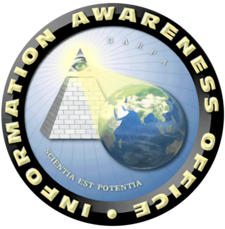From Mises Blog. Archived comments below.
“Scientia potentia est” (“knowledge is power”)–Francis Bacon’s famous expression. For thousands of years, the human standard of living was flat. It finally started significantly increasing with the Industrial Revolution–with the rise of capitalism (strong, systematic protection for property rights) and with the spread of technology and scientific knowledge. As I argue in Ideas Are Free: The Case Against Intellectual Property:
Mises explains in The Ultimate Foundation of Economic Science that “To act means: to strive after ends, that is, to choose a goal and to resort to means in order to attain the goal sought.”[14] Obviously, the means have to be causally efficacious to obtain the desired end. So as Mises has observed, if there was not causality, men “could not contrive any means for the attainment of any ends.” Knowledge and information, of course, play a key role in action as well. They guide action. The actor is guided by his knowledge and information. Bad information results in unsuccessful action or loss. As Mises puts it, “Action is purposive conduct. It is not simply behavior, but behavior begot by judgments of value, aiming at a definite end and guided by ideas concerning the suitability or unsuitability of definite means” (emphasis added).
So all action employs means and all action is guided by knowledge and information.[15] As Mises says, means are necessarily scarce resources. He said, “Means are necessarily always limited, i.e. scarce, with regard to the services for which man wants to use them.”
So, in other words, to have successful action, you have to have knowledge about causal laws to know which means to employ. You have to have the ability to employ these means suitable for the goal that you are seeking. So the scarce resources that you need to use as means need to be owned by you. This is why there are property rights in these things. The nature of a scarce resource is that use by one person excludes use by another; but you don’t need to own the information that guides your action in order to have successful action. For example, two people can make a cake at the same time. They each have to have their own ingredients, but they can use the same recipe at the same time.
Material progress is made over time in human society because information is not scarce. It can be infinitely multiplied, learned, taught, and built on. The more patterns, recipes, causal laws that are known add to the stock of knowledge available to all actors and act as a greater and greater wealth multiplier by allowing actors to engage in ever-more efficient and productive actions. It is a good thing that ideas are infinitely reproducible, not a bad thing. There is no need to impose artificial scarcity on these things to make them more like scarce resources, which, unfortunately, are scarce.
Knowledge is power because it guides action. It opens up a wider, richer universe of possibilities: it allows human actors to choose from a wider array of ends, and from a wider, richer set of means to achieve one’s preferred ends.
Human progress requires property rights, so that scarce means may be peacefully and productively used; and it requires an expanding body of knowledge that can allow ever more efficient and creative use of scarce resources. Both property rights in scarce resources, and greater knowledge, contribute to efficiency, and thus to human prosperity.
Recognizing property in scarce means is essential to survival. But to impose property rights on knowledge–which is what “intellectual property” law does–is suicidal madness. It is to limit and restrict information and knowledge. It is to hobble and blind ourselves.
Update: Relevant quote from Thomas Paine: “The mind once enlightened cannot again become dark.” Letter to Abbe Raynal.
Property Rights/Human Rights Cannot Violate True Reality!
‘imposing property rights on knowledge’ is just legislation but not law!
An anology may prove interesting: The Al Gorites legislate global warming but the thermodynamic laws of the planet are in no way related to nor bound by them!
Knowledge is beyond the realm of puny human comprehension yet it is like a fountain that continually flows and is bountifully replenished from an invisible source!
“Recognizing property in scarce means is essential to survival. But to impose property rights on knowledge–which is what “intellectual property” law does–is suicidal madness. It is to limit and restrict information and knowledge. It is to hobble and blind ourselves.”
No, IP is not about property rights on knowledge, it is about introduction of knowledge into the economy as all IP are temporary.
For libertarians, it is about how long would you practice self restrain before you use new knowledge free. It is like true ethics, independent of codification.
so what if it is temporary. It still has no merit and actually, it invades physical property. Always. Either IP trumps physical property or the other way round. You can’t have both without conflict.
No, IP is not about property rights on knowledge, it is about introduction of knowledge into the economy as all IP are temporary.
And legitimisation of rape is not about property rights in sex, but about the introduction of sex into economy as all rape is temporary.
Dream on.
There is nothing “temporary” about 100+ year patents and lifetime + 100 year copyrights. “Arbitrary” is a better word.








“It finally started significantly increasing with the Industrial Revolution–with the rise of capitalism (strong, systematic protection for property rights)”
In fact, improvement started long before the industrial revolution, which in turn coincided not with stronger property rights in general, but with a more extensive state apparatus including greater regulation and expanded use of eminent domain, as well as vast seizures of land across Africa, Asia, South America and North America.